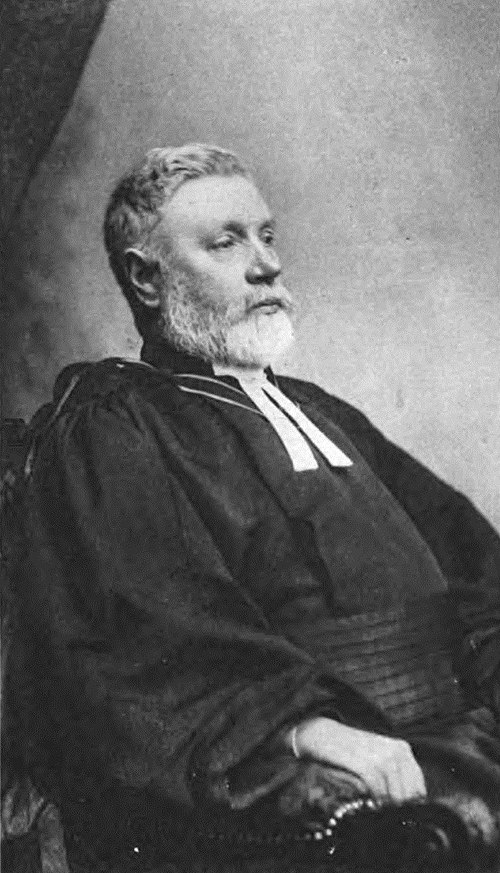May Richer, Fuller Be: A Life Surrendered

In this week's episode of The Bright Forever, we explored the profound depths of George Matheson's hymn "O Love That Will Not Let Me Go" – a hymn written in just five minutes yet containing theological richness that continues to comfort and challenge believers nearly 150 years later.
The story behind this hymn is as moving as its lyrics. Matheson, a brilliant Scottish pastor and theologian, faced the devastating blow of progressive blindness in his youth. Adding to this hardship, his fiancée broke their engagement upon learning of his condition, telling him she couldn't bear to live with a blind man. His devoted sister became his caretaker and support, but on the evening of her wedding in 1882, Matheson found himself utterly alone with his grief. It was in this moment of profound emotional suffering that the entire hymn poured out of him in a mere five minutes—a creative burst he later described as being "dictated by some inward voice."
What makes this hymn extraordinary is that instead of bitterness or self-pity, Matheson's response to abandonment and loss was a declaration of trust in God's unfailing love. Each of the four verses presents a profound paradox that challenges our natural inclinations and worldly logic. The first verse speaks of God as "love that will not let me go," demonstrating the foundation of God’s tenacity rather than human effort. We are secure not because we hold tightly to God, but because He holds tightly to us. The imagery of giving back our lives only to find them "richer, fuller" in God's "ocean depths" parallels Jesus's teaching that unless a grain of wheat falls into the ground and dies, it remains alone, but if it dies, it bears much fruit (John 12:24).
The second verse transitions from God's love to His light, with Matheson acknowledging he must give up his "flickering torch" to receive the "sunshine's blaze." This speaks powerfully to our tendency to cling to what little control we think we have—our small understanding, our limited vision, our human plans—rather than trusting God's far superior guidance. Matheson's physical blindness becomes a metaphor for spiritual sight; in surrendering his dim torchlight, he gained access to a far greater “sight”.
Perhaps the most emotionally striking verse is the third, where Matheson writes about a "joy that seekest me through pain." This counterintuitive concept—that joy actively pursues us through suffering rather than waiting on the other side of it—offers deep comfort. His poetic line about tracing "the rainbow through the rain" has become one of the most beloved in hymnody, reminding us that God's covenant promises remain visible even in the darkest storms. This isn't mere positive thinking; it's the biblical assurance that our suffering is never the final word.
The hymn concludes with a focus on the cross, the ultimate paradox where death yields life. Matheson embraces rather than flees from the cross, laying "in dust life's glory dead" so that "from the ground there blossoms red life that shall endless be." Matheson goes full resurrection mode as he completes the journey from surrender to eternal life, affirming that what we release to God returns to us transformed and glorified.
For contemporary Christians navigating anxieties, disappointments, and suffering, this hymn offers a thoroughly counter-cultural message. In a world obsessed with self-determination and self-reliance, Matheson reminds us that surrender isn't weakness—it's the pathway to receiving God's strength. In a culture that avoids pain at all costs, he shows us how to trace God's promises through our storms. And in a society fixated on temporal glory, he redirects our gaze to the eternal life that blooms from laying down our earthly ambitions.
This episode invites listeners to reflect: What are you holding that needs to be laid down? Where have you been trying to maintain control rather than trusting God? What suffering might become the soil for new life if surrendered to Christ? Matheson's hymn doesn't just offer comfort—it challenges us to embrace the upside-down kingdom where losing is finding, dying is blooming, and letting go means being held by a love that will never let us go.
















